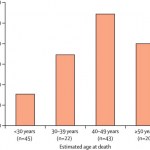Hunter-gatherer
All human hunter-gatherer groups that have been studied incorporate meat in their diets. Studies have shown that the total dietary contribution of meat varies a great deal, and seems to increase with latitude so that foragers in subarctic and arctic regions eat a lot of meat while those living near the equator eat less. It is probably true that tropical and subtropical foragers obtain more of their calories from plants than from meat over any reasonable amount of time. The meat consists primarily of mammals for most groups, but fish, birds, reptiles, and invertebrates can reach high…
There are many fallacies that undergird alternative medicine, which evolved into "complementary and alternative medicine" (CAM), and for which the preferred term among its advocates is now "integrative medicine," meant to imply the "best of both worlds." If I had to pick one fallacy that rules above all among proponents of CAM/IM, it would have to be either the naturalistic fallacy (i.e., that if it's natural—whatever that means—it must be better) or the fallacy of antiquity (i.e., that if it's really old, it must be better). Of course, the two fallacies are not unrelated. In the minds of CAM…
Tom Rees, Income inequality drives church attendance:
...we find that attendance rates are particularly high in countries with more socioeconomic inequalities and fewer social welfare expenditure. This effect equally applies to both poor and rich people, which is in line with the idea that because of economic mobility and the possibility of unemployment in the (nearby) future also the more affluent population feels more insecure in countries with more inequalities and without a well-developed social welfare system.
We also see that people with a lower income and who are unemployed attend…

